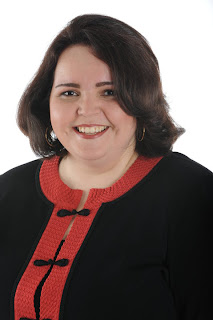In a recent article for the National Review, Kathryn Lopez writes about attending the 2012 Edith Stein Conference, hosted and organized by undergraduate women at Notre Dame.
A group of young women there invited me, among others, to speak about the “vulnerability” of all things, at their seventh annual Edith Stein Project conference. Stein — a canonized saint who was killed at Auschwitz — was both a Carmelite sister and a philosopher and university professor. The women of Notre Dame find in her a role model in both the intellectual and the spiritual realms — a courageous, well-integrated life.
These students were — to quote the title of their conference — “Encountering Vulnerability,” with a rare healthy, honest openness to tried and true models. They cited Pope John Paul II as saying, “No amount of economic, scientific, or social progress can eradicate our vulnerability to sin and to death.” In conference materials, the undergraduates commented: “This gives us good reason to guard ourselves carefully in situations where we could be harmed; however, in trying to protect ourselves, we often come to fear our vulnerability.”
The young women — who were joined by many of their male classmates — were interested not in political mantras but in practicalities: How do we confront reality rather than coming up with policies and pills to help us try to escape the inescapable?
The task of the weekend conference was to ask, as its organizers put it: “Perhaps there is a flip side to vulnerability. In addition to examining ways in which it may be misused, we must also consider its value. If vulnerability is intrinsic to us as human beings, is there a proper place for it in our identity and our relationships?”
The answer lies, in part, in Saint Paul, who recognized that “it is when I am weak that I am strong.” And the exploration of the “defenseless vulnerability of love” is a weekly task at Notre Dame, as part of the Identity Project, in which students meet each week to reflect on Catholic teaching on women, femininity, and masculinity. The answer, too, is in their identity as Christians who present themselves regularly for Mass and Reconciliation, seeking sustenance from Providence, which no earthly power or principality can match.
The Edith Stein conference and the weekly related meetings attract almost as many young men as women — not surprisingly, inasmuch as their discussions are about the complementary nature of men and women. “Women and men have to understand femininity and masculinity if they are going to relate to one another in any kind of healthy way,” explains Margaret Kennedy, a junior and an accounting major.
Notre Dame has been criticized for giving cover to the Obama administration, particularly through having awarded the president an honorary degree at its 2009 commencement. But there is something different happening there in the wake of the HHS mandate. One of the first people I heard from after the president’s faux “accommodation” was law professor Carter Snead, who has circulated a letter declaring the president’s position “unacceptable” — a letter hundreds of academics and other leaders have signed.
The young men and women of the Stein Project have no illusions about the challenges they face on campus and beyond. “I understand that I am not living my life only for myself,” Kennedy tells me. “And I am making choices that reflect that.” Confronting vulnerability is at the top of the list. “What we typically think of as a negative is actually a positive,” she says: Feminism dictates that “we’re not allowed to be vulnerable, but we cannot escape that vulnerability. By hiding ourselves from it we don’t actually escape it.”
“Contraception,” she says, “is but a mask,” covering up our vulnerabilities. It’s like alcohol, she adds: “a way not to confront our fears or take responsibility for our actions.”Claire Gillen, a history major graduating in May, is getting married to her high-school sweetheart that same month. “Adults, especially, tell me I’m too young, I should be established in a career,” she says. But as for the students, “Honestly, I know very few people who don’t want to get married. They’re happy to see someone truly happy.” They are tired of forced war-between-the-sexes hostilities.
In reality, the answer to the question “Where are the women?” — which every abortion-advocating feminist group is now milking for fundraising — is: on the committee’s secondpanel. Those who asked the question the most, as an act of political showmanship, didn’t stick around long enough to meet the woman, Dr. Laura Champion, who runs Calvin College’s medical services. And the more long-term answer is: They are the young leaders at Notre Dame, who have a lot to teach those who have been suppressing or denying reality for all too long about who we are and what we need and want.For Lopez's full article, click here.
To watch videos from the conference, click here
For more information about the Edith Stein Conference and IDND, click here.

No comments:
Post a Comment